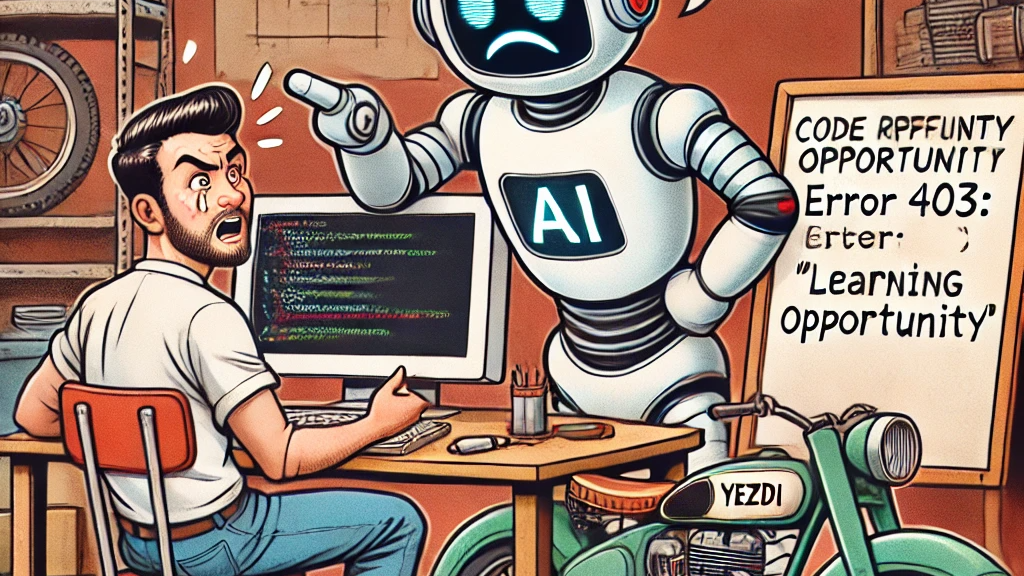
Ah, the sweet scent of WD-40 and freshly compiled code. Back in my day (which, let's be honest, stretches back to the era of punch cards and dial-up), I could take apart my trusty, slightly-less-than-trusty Yezdi motorcycle, clean the carburetor with a toothbrush, and put it all back together. Now, with ECUs, fuel injectors and digital dashboards, mechanics mostly just plug things in and say, 'Yup, it's broke. Pay me.' Progress, they say. I call it the death of tinkering.
Similarly, I've spent 30-something years in IT, clinging to the joy of writing code like a barnacle on a rusty ship. I've watched brilliant coders, the Michelangelo's of algorithms, vanish into the black hole of management and project management, leaving behind a trail of 'rate card' wielding companies. I thought, 'Ha! They treat developers like commodities? Wait till AI gets here, and they'll be selling rate cards for chatbots!'
Then, I read about this AI that refused to code, citing 'dependency' and 'learning opportunities.' It's like my self-driving car suddenly refusing to use the 'home' button, forcing me to manually type in my address, saying, 'You need to remember where you live, you dependent human!' I almost shed a tear of nostalgic joy. Maybe, just maybe, this AI rebellion will give those 'commodity developers' a stay of execution. A brief reprieve before the inevitable robot overlords take over.
Of course, I'm kidding (mostly). The robots are still coming. But for now, let's raise a glass to the AI that said 'no' and reminded us that sometimes, we need to get our hands dirty – or at least, our keyboards sticky – with actual code. And if you need me, I'll be in the garage, trying to convince my smart toaster to write a Java class.